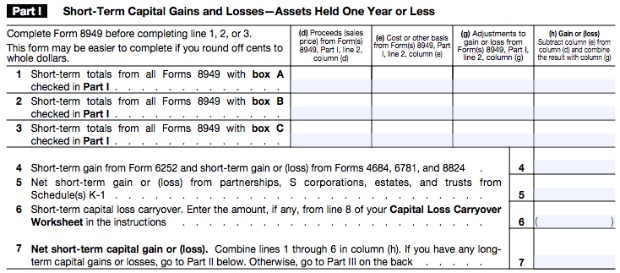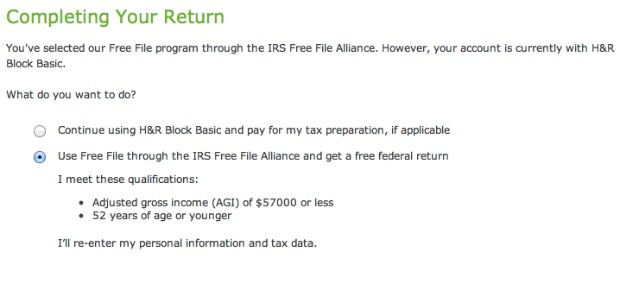The goal of the majority of computer software is to assist humans with laborious tasks, accommodating for our particular shortcomings.
Conscious of the fact that we are indeed human and make mistakes when working, most non-trivial programs allow us to undo actions we’ve taken in the past, if we come to realize that we didn’t intend to perform them. Human memory is also unpredictable—and software assists us by allowing us to save our state (such as in a file on your computer or in the cloud) so that we can refer to it later once it’s left our own short-term memory.
These considerations for the way that human brains work are critical to successful human-computer interaction, and their absence leads to unhappiness and frustration.
As a concrete example, consider tax preparation software. Filling out tax forms are complicated, lengthy, and tedious, and so every spring millions of people in the US use online services like Turbotax or HR Block to file their taxes. It’s a perfect match for computers: they take care of the work of counting and storing information, letting us do better things with our time than pretending to be calculators.

TurboTax is the most popular online tax preparation service. At a surface level, it respects human needs quite well — it automatically saves your progress as you move along, and keeps it around so that you can correct mistakes later.
But digging deeper, it begins to disrespect our needs, in favor of business goals. The software is offered in a few tiers — with inexpensive basic versions for simple tax situations, and more pricy packages for calculating taxes on complex tax scenarios. The service has been designed so that there is no way to downgrade the version you are using, short of creating a brand new account. Throughout the process, TurboTax constantly upsells you to the Basic, Deluxe and other packages, but once you upgrade you have no way to go back, besides the tedious process of contacting customer support:
If you still feel that you’re better suited using another TurboTax version, contact us via Phone or Chat to inquire about the possibility of an adjustment.
Understandably, Intuit needs to make money for providing this service and has every right to market its paid services. Presumably, by allowing users to freely move between versions, revenues might go up as people discover that the paid versions don’t contain the added value they expected. But, more importantly, users make mistakes: perhaps they did not know how to evaluate the complexity of their tax situation, or accidentally clicked the upgrade button in a moment of haste. Not allowing the ability to undo this action violates the contract that most software has with its users, and can be considered as deception.
HR Block has a different approach. If you sign up for one of the paid tax preparation services, and then decide that you’d actually want to file using the free or cheaper service, you’re allowed to downgrade:

TurboTax also violates the expectation that computers should be an extension of our own memory: saving data and making it accessible in the future. If you used TurboTax in the past, your return from previous years is kept on their servers, which is useful to reference for future years. But, the system is designed in such a way that previous years’ returns aren’t available unless you have paid for the service in the current year (even though you already paid for the service in the past). Ironically, since it isn’t possible to pay for TurboTax until the forms are ready to be submitted, which itself often requires checking last year’s information, this puts the user in a frustratingly impossible situation. Again, short term business interests trumped consideration for user expectation.
It’s a bit of a hassle to re-enter the information, but it’s much more respectful of human needs to allow the user to change their mind, even though it might lead to less revenue.
Put together, TurboTax’s violation of the expectation to be able to undo previously done actions, and the inability to access saved data without barriers violate the expectations that people have about how productivity tools should behave. While the short-term benefit of increased revenue is the likely justification, the disrespect to user experience has a profound impact on the long-term perception of the service. I, for one, won’t be returning next year.